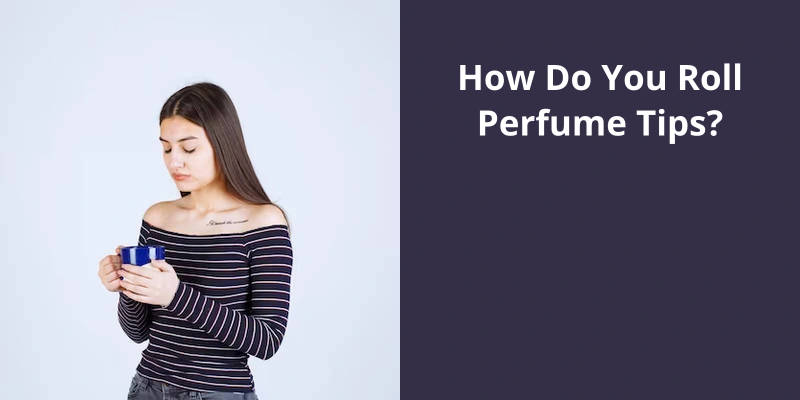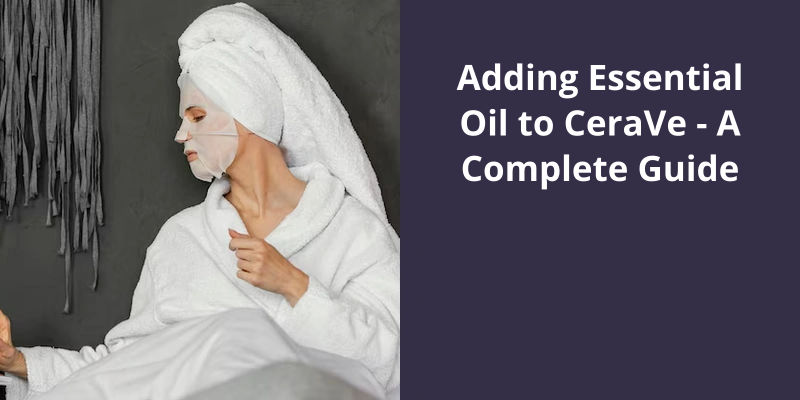"Can I Apply Fragrance in Front of the Sun?" This is a question that many individuals have pondered, as the act of applying perfume or aftershave is a common part of our daily grooming routine. However, there may be more to this seemingly innocent gesture than meets the eye. According to dermatologist Chanele Rosa, spraying fragrance on your chest and neck and then exposing your skin directly to sunlight can have adverse effects. She warns that this combination can lead to the development of a skin condition known as Poikiloderma of Civatte. With this revelation, it becomes clear that caution should be exercised when it comes to the application of fragrance in the presence of the sun. It’s crucial to consider the potential repercussions and seek appropriate advice to safeguard our skin health.

Does Perfume Lose It’s Smell in the Sun?
Exposing perfume to direct sunlight can lead to the degradation of it’s fragrance, as confirmed by fragrance experts. The heat from the sun plays a significant role in this process, as it can break down the chemical bonds responsible for the scent of a perfume. The delicate balance of aromatic notes can easily be compromised by the excessive heat that comes with sunlight exposure. Therefore, it’s advisable to avoid applying fragrance directly in front of the sun to maintain the longevity and quality of the scent.
In addition to heat, sunlight exposure can also cause the breakdown of the molecules responsible for a perfumes longevity. Therefore, it’s recommended to store perfumes in cool, dark places away from direct sunlight to maintain their original scent for a longer period of time.
These delicate ingredients can lose their potency or even turn rancid when exposed to prolonged sunlight exposure.
The degradation process can lead to a loss of fragrance potency, a change in odor profile, and a shorter lifespan for the perfume.
Furthermore, using body spray on your armpits may not be the best option as the formula is typically not designed to be applied to sensitive skin. It may cause irritation, redness, or discomfort, especially if you’ve any existing skin conditions. It’s important to use products specifically made for underarm use to ensure proper effectiveness and care for your skin.
Can I Use Body Spray on My Armpits?
Using a body spray on your armpits may seem like a quick and convenient way to freshen up, but it isn’t an effective substitute for a proper deodorant. Body sprays are designed primarily to add fragrance to the body, rather than to tackle perspiration and odor. The ingredients in body sprays aren’t specifically formulated to mask the unpleasant smell that can develop in your armpits throughout the day.
Deodorants, on the other hand, contain antibacterial agents that can help eliminate odor-causing bacteria, as well as ingredients that can neutralize odors. They’re specifically designed to target underarm odor and control perspiration. By using a deodorant, you can ensure that you’re effectively combating body odor rather than simply trying to cover it up with fragrance.
While a body spray can indeed add a pleasant scent to your body, it’s unlikely to overpower any unpleasant tones that may arise from your underarms. Body odor is caused by bacteria breaking down sweat, and fragrance alone can’t effectively combat this process. It’s important to distinguish between a body spray and a deodorant, as they serve different purposes and have different formulations.
The key to applying fragrance is knowing where to apply it for optimal scent diffusion. Instead of randomly spritzing it all over your body, focus on your pulse points. These areas, like the inside of your wrists, inner elbows, below your belly button, behind your ear lobes, and the back of your knees, emit extra body heat, allowing the scent to linger and develop more effectively.
Where Should I Apply My Fragrance?
When it comes to applying fragrance, it’s important to choose the right spots on your body to ensure that the scent lasts longer and is noticeable. The pulse points, also known as warm spots, are ideal for applying fragrance because they emit extra body heat, which helps to naturally diffuse the scent. These spots include the inside of your wrists, inner elbows, below your belly button, behind your ear lobes, and the back of your knees.
The inside of your wrists is one of the most common places to apply fragrance. This area is ideal because it’s warm and close to the veins, allowing the scent to be carried throughout your body. Similarly, the inner elbows have thin and delicate skin, which allows the fragrance to be easily absorbed and released throughout the day.
Another effective spot is below your belly button. Applying fragrance in this area allows it to mix with your natural body heat and be released slowly, creating a long-lasting scent. Behind your ear lobes is also a great choice, as the skin is thin and contains many pulse points, enhancing the diffusion of the fragrance.
Lastly, the back of your knees is another warm spot that can enhance the longevity of your fragrance. This area is often overlooked but can effectively release the scent as you move and the temperature rises.
By applying fragrance to these pulse points, you can ensure that the scent will last longer and be more noticeable. It’s important, however, to avoid spraying directly onto your skin in strong sunlight, as certain ingredients in fragrances can react to UV rays and cause skin irritation. It’s best to apply fragrance indoors or in a shaded area before heading out into the sun.
How to Choose the Right Fragrance for Different Occasions and Seasons.
Choosing the right fragrance for different occasions and seasons can greatly enhance your overall experience. When selecting a perfume or cologne, it’s important to consider the tone and atmosphere of the event or season.
For formal occasions such as weddings or business meetings, opt for elegant and sophisticated scents with floral or woody notes. These types of fragrances convey professionalism and sophistication.
During the warmer months, go for light and refreshing scents that complement the sunny weather. Citrus, aquatic, or fruity fragrances are great choices for summer. They’ve a clean and energizing effect, perfect for casual outings or outdoor gatherings.
In contrast, colder seasons call for warmer scents with spicy or oriental notes. These fragrances evoke a sense of coziness and are well-suited for evenings or indoor events.
Remember, your personal preference should always be the ultimate deciding factor. Experiment with different fragrances and find the ones that make you feel confident and comfortable.
Perfumes, with their combination of volatile oils and aromatic compounds, are inherently designed to be activated by heat and interact with the natural oils on our skin. The intricate chemistry of these fragrances makes them most effective when applied directly onto the body, rather than on clothing, enhancing their longevity and intensity.
Does Heat Activate Fragrance?
When it comes to fragrance, many people wonder whether heat has an effect on the activation of the scent. Perfumes are made up of volatile oils and sweet-smelling chemicals that are designed to be released into the air and create a pleasant aroma. This is why you may notice that a perfume smells stronger and lasts longer when you’re in a hotter environment.
In addition to heat, the oils on your own skin can also play a role in activating fragrance. The natural oils on your skin can help to break down the perfume molecules and release their scent more effectively. This is why it’s often recommended to apply perfume directly to your pulse points, such as your wrists, neck, and behind your ears. These areas tend to be warmer and have more oil glands, making them ideal for activating the fragrance.
Another factor to consider is that perfumes are formulated to work better when in contact with the body rather than your clothing. When applying perfume to your clothing, you may find that the scent isn’t as strong or long-lasting. This is because the fabric can absorb some of the fragrance molecules, preventing them from fully evaporating into the air.
However, it’s important to note that excessive heat can also have a negative effect on fragrance. High temperatures can cause the volatile oils in perfumes to break down and degrade, leading to a weaker or altered scent. It’s best to store your perfumes in a cool, dark place to preserve their integrity. Additionally, be cautious when applying fragrance in direct sunlight, as the combination of heat and UV rays can accelerate the degradation process.
Source: Tips and tricks to make your perfume last all day – Scent City
Conclusion
The potential consequences, such as the development of Poikiloderma of Civatte, shouldn’t be taken lightly. Consulting with a dermatologist and following their guidance can help mitigate the risks associated with fragrance use and sun exposure. Prioritizing skin health and making informed decisions is essential to maintain a healthy and radiant complexion.




